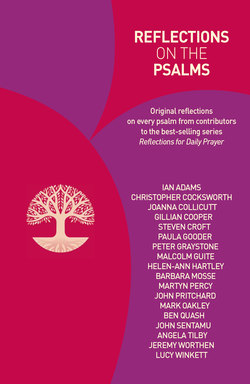Читать книгу Reflections on the Psalms - Steven Croft - Страница 24
На сайте Литреса книга снята с продажи.
Psalm 13
ОглавлениеHow long will you forget me, O Lord; for ever?How long will you hide your face from me?
‘Look upon me and answer’ (v.3)
At its best, the Church is a school for relating. The life of faith teaches us to relate more deeply to God, other people and ourselves. This short psalm, maybe written on a sick bed, begins with the psalmist intensely focused on himself. The opening fourfold question of lament – ‘How long…?’ – reveals the anguish being felt within his heart. A reference to others follows, but they are seen as enemies and only looking on the psalmist’s vulnerability with a sense of victory and pride. Both the relationship to his neighbours and to the psalmist’s own self are in paralysis. Infused with anguish, the first four verses of this psalm are a statement of impatient hope. The author uses three urgent verbs to God: ‘Look … answer … lighten’ (v.3), calling on God to break in on his life.
What occurs in the psalmist’s life between writing verse 4 and verse 5 we will never know, but it is transformative and decisive. The tone of the psalm shifts from one of impatience to trust, with talk of ‘salvation’ (v.5) and the ability to ‘sing to the Lord’ (v.6).
The last line of the psalm that declares that God ‘has dealt so bountifully with me’ resonates with those of us who have to look back in our lives, rather than dig around in the distracted and heated present, to read the love between its lines.
Reflection by Mark Oakley
Refrain:
I love the Lord, for he has heard the voice of my supplication.
Prayer:
Jesus Christ, Son of God,
who passed through the dark sleep of death,
remember those who cry to you
in shame and silence and defeat
and raise them to your risen life,
for you are alive and reign for ever.
